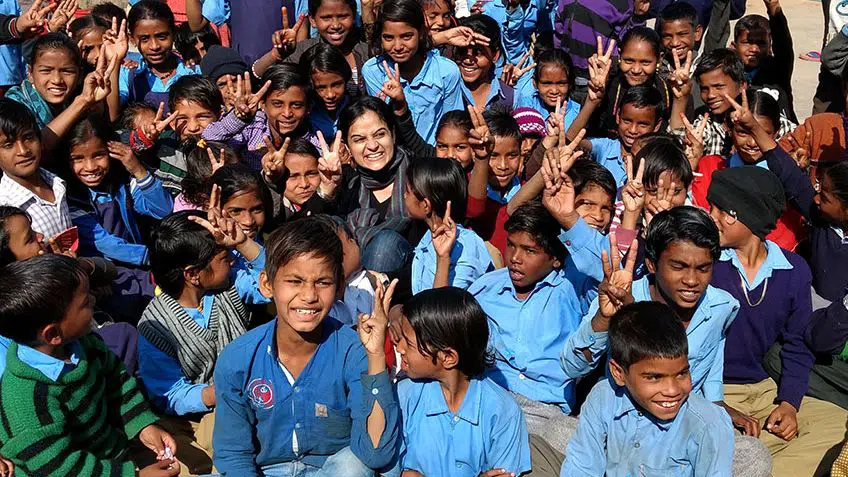1. Patience and Dealing with Change
As a child, I remember auditioning for all plays in school. Those late night drama rehearsals, staying back in school (I was a day scholar so staying back in school was very exciting) and the thrill to represent my school in various inter-school platforms were not just exciting scenarios but also gave me a sense of pride. Recently, I found myself going through exactly that – after nearly twenty years!
So, I had to help a bunch of 15 year olds write a script for a play writing competition and I found myself eating, walking, sleeping and writing the play for one whole week. I just couldn’t concentrate on anything else and typed copiously for hours on end. My enthusiasm was crushed when I noticed the lack lustre response from the real participants. They seemed impatient, bored even.
I was compelled to think about this and drew out various possibilities. One being that when I was growing up there were fewer sources of distraction and entertainment, and so we were a bit more likely to hang in there. There were times when even I got bored especially while watching boring films but I often found myself mulling over those boring films later and discovering something interesting about them.
Patience is a skills that children today are fast losing. How can patience help them in the future? Well, sometimes hanging in there can lead to spectacular discoveries. If you don’t stop to look and absorb you are bound to miss the minor details.
I have noticed children today getting easily distracted and their attention being yanked by the slightest distraction. The availability of so many choices is making them evasive and bored easily.
To inculcate patience we need to figure ways that can help them understand the potential benefits of sustained attention. For me a major benefit of patience is dealing with change – A great after effect of patience and also another essential 21st century skill.
2. Compassion and Collaboration
I still remember how kind my mother was towards all living beings. I often found her making conversation with anything that breathes – plants, animals, birds and even insects. As a child I found it extremely amusing but now I see myself doing exactly the same. Is talking to living being the next value? Well partly yes, because that is what leads to compassion.
I find stories an interesting medium to help children understand compassion. The 21st century is about team work. Sadly, collaboration is a skill that I don’t see often in my classroom. Children have to be coaxed to look beyond I, me, myself. I could blame the nuclear family set-up for this but that would be unfair. I feel somehow collaboration is linked to compassion. To be able to work with someone despite their weaknesses we need to empathise with them, recognise their strengths our own weaknesses and then work on creating something spectacular together.
And how does talking to insects, plants and animals help build compassion? Ah well, Try it. It helps break ice to make conversation with anyone and everyone. Especially when the conversation is one sided. Though it may seem one sided on the surface but believe me your words always resonate with the one on the other side at some level.
3. Embracing Failure
In life we always come across people who can never arrive at a decision. We all have that one friend who calls us for trivial things (well they may seem trivial to us but to our friend it is a matter of life and death). Also later you find out that this friend not just called us for our opinion but also everyone else in class. And even after so many suggestions the friend in question still hasn’t been able to decide what to do.
Why do you think that happens? I blame our education system and the pressure on us not to fail for this. How so? Okay so while growing up very few parents and teachers let us decide for ourselves. Mostly we are given everything on a platter and failing is an absolute no-no.
In school we had a teacher who would come into class, open the book and ask us to underline only the portions she was reading out. For our exams we were to ONLY mug up the underlined potions. That was what was ‘in syllabus’. For me that subject became dreary. I never bothered to read the stuff that was not ‘in syllabus’. I didn’t even risk reading the un-underlined portions, lest I failed! Eventually I never developed an interest in the subject and gave it up.
In the 21st century, children need to stop thinking with blinders on. It’s essential to discover the joys in things ‘out-of syllabus’. It is important to be able to take decisions quickly. It is also important to take risks, fail, get up, take more risks, fail again, get up again – stronger this time, take more risks and so on.
We give too much importance to failure. Failure deserves importance, yes, but because it is essential and not because it a taboo. We have to help our children understand that it is okay to fail. It is okay to take wrong decisions but it is absolutely not okay to have a limited vision. Remove those blinders and look around. It is a beautiful world and everything around deserves our attention – Not just the things ‘in syllabus’.

